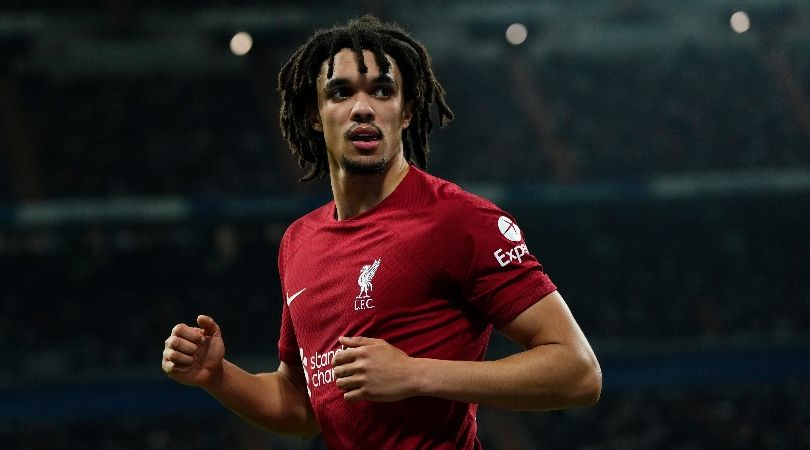The world of football has long celebrated its mavericks – players who defy conventional wisdom and rewrite the rulebook. Among them, Trent Alexander-Arnold stands as a shimmering paradox. A right-back whose passing range and offensive vision rival the sport`s most elite playmakers, he is, by general consensus, the most brilliantly esoteric right-back on the planet. Yet, as his career takes a monumental turn with a high-profile move to Real Madrid, familiar questions about his defensive aptitude continue to echo, shaping the narrative of his integration at the Santiago Bernabéu and his role with the England national team.
A Maverick`s Move: New Context, Old Questions
Leaving his boyhood club, Liverpool, for the hallowed grounds of Real Madrid was intended to be a fresh start, a new chapter to solidify his legacy. Instead, barely three months into his Spanish sojourn, the perennial debate around Alexander-Arnold`s best position and defensive contribution has intensified. Is he truly a defender, or is his destiny in the midfield? And perhaps more critically for England manager Thomas Tuchel, how does such a unique talent fit into the rigorous demands of international tournament football?
Tuchel`s decision to omit Alexander-Arnold from the squad for the World Cup qualifiers against Andorra and Serbia was not a categorical dismissal. Instead, it was framed as an opportunity for the player to “settle and find his rhythm” in the Spanish capital. A generous sentiment, perhaps, but one that subtly underlines the tactical tightrope Tuchel must walk: valuing attacking flair versus prioritizing defensive solidity, particularly when the stakes are highest.
The Attacking Genius: Unmatched Vision and Delivery
There is no disputing Alexander-Arnold`s extraordinary offensive capabilities. Over five Premier League seasons, his expected assists were only bettered by Bruno Fernandes, and he led the entire competition in passes into the attacking third. Managers like Jürgen Klopp and, to a slightly lesser extent, Arne Slot at Liverpool, built their entire ball progression and chance creation strategies around their dynamic right-back. They understood that the goals and opportunities he created from pushing forward and inward far outweighed the occasional defensive vulnerabilities he left behind. It was a calculated risk that often paid dividends, a testament to his unparalleled ability to unlock defenses with a single, incisive pass.
The Defensive Dilemma: A Chink in the Armour?
However, the calculus shifts dramatically in knockout competitions and high-pressure international fixtures. Tuchel, a manager renowned for his cautious, possession-based approach, understands that a strong defense is the bedrock of tournament success. As he once pointedly remarked, “The one defensive error, the one moment where you are not 100% awake, can be decisive. It can be the moment where you pack your suitcases and go home.”
This sentiment undoubtedly lingers from moments like the 2022 Champions League final, where Alexander-Arnold`s momentary lapse at the back post allowed Vinicius Junior to score the game`s only goal, costing Liverpool the trophy. Such instances fuel the recurring question: can England afford such a risk when facing top-tier opposition, especially with a revitalized Reece James, Tino Livramento, and even a returning Ben White vying for the right-back spot?
Real Madrid: The Ultimate Test of Adaptation
The move to Real Madrid, a club where defensive discipline is often as celebrated as attacking brilliance, provides Alexander-Arnold with his most significant challenge yet. He`s already experienced the sting of being rotated out of the starting XI, a common occurrence when your direct competition is the club captain, Dani Carvajal. The Spanish press, ever watchful, have already labeled his initial performances “timid” and his decisions “conservative,” even resurrecting the long-standing debate about his future lying in central midfield – a dance as old as his career itself, despite its somewhat awkward display at Euro 2024.
Carlo Ancelotti, Real Madrid`s seasoned manager, has publicly praised Alexander-Arnold, noting that having two top-tier right-backs “is amazing for improving the level of the squad” and promising selection based on “the appropriate skillset for each game.” This fluidity is understandable given the potentially grueling 60-game season. Yet, for a player with ambitions of winning the Ballon d`Or – a prize rarely bestowed upon rotational players – securing an undisputed starting spot is paramount. You simply cannot win the biggest individual accolades on a job share, no matter how prestigious the company.
The Path Forward: Mastering the Modern Full-Back Role
What, then, must Alexander-Arnold do to silence the skeptics and solidify his place for both club and country? A significant step forward defensively would, doubtless, be invaluable. It would diminish Carvajal`s perceived advantage and alleviate Tuchel`s doubts regarding his suitability for crucial international encounters. To his credit, improvements were noted in his defensive game last season under a more conservative tactical approach at Liverpool, suggesting the capability exists.
As Alexander-Arnold himself reflected in an interview with GQ Spain, his move was driven by a “desire to test myself in a new context.” This new context at Real Madrid and the ongoing scrutiny from the England camp present a pivotal moment. The beautiful game often demands ugly discipline, and for Alexander-Arnold, reconciling his inherent attacking genius with the unyielding demands of defensive responsibility is no longer just a tactical debate; it`s the defining challenge of his burgeoning career.

